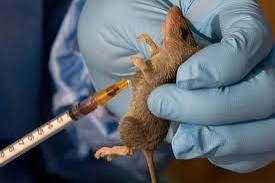Ayomide Awe
The Nigeria Centre for Disease Control and Prevention (NCDC) has reported a concerning spike in Lassa fever cases, with 1,018 confirmed infections and 172 fatalities recorded across 28 states in Nigeria as of September 29, 2024.
This was revealed in the NCDC’s latest Lassa fever situation report, which showed the virus continues to spread rapidly despite ongoing containment efforts.
The data, collected from January 1 to September 29, indicated that the confirmed cases were drawn from 8,411 suspected infections, spanning 128 local government areas (LGAs) across the country.
The case fatality rate (CFR) for the disease remains alarmingly high at 16.9 per cent, slightly above the CFR of 16.8 per cent during the same period in 2023.
Lassa fever, a viral haemorrhagic illness caused by the Lassa virus, is typically transmitted through exposure to food or household items contaminated by the urine or faeces of infected Mastomys rats.
The World Health Organisation (WHO) states that Lassa fever is endemic in West Africa, particularly in Nigeria, Benin, Ghana, Guinea, Liberia, Mali, Sierra Leone, and Togo.
Human-to-human transmission is also possible, especially in healthcare settings where proper infection control measures are lacking.
According to the NCDC, the number of new confirmed cases has been increasing, with nine new infections recorded in week 39 of 2024, up from four in the previous week. Ondo and Edo states reported the latest surge.
The cumulative death toll of 172 for the year underscores the deadly nature of the virus, which continues to wreak havoc in affected regions.
The report highlighted that Ondo, Edo, and Bauchi states account for 68 per cent of all confirmed cases, with Ondo leading at 28 per cent, Edo at 23 per cent, and Bauchi at 17 per cent.
The remaining 32 per cent of confirmed cases have been spread across 25 other states.
The age group most affected is between 31 and 40 years, and there is an equal male-to-female ratio among confirmed cases.
Despite the increasing spread of the virus, no new healthcare workers were affected in the latest reporting week, a positive sign amidst the challenges.
The NCDC’s multi-sectoral technical working group, involving partners from various sectors, continues to lead the response effort at all levels.
The Lassa fever situation remains a serious public health concern in Nigeria, particularly in high-burden states.
Public health authorities urge residents in affected areas to adhere to preventive measures, including proper food storage, maintaining hygiene, and avoiding contact with rodents.
Health facilities have been advised to strengthen infection prevention practices to curb further transmission, especially among healthcare workers.
Do you want to share a story with us? Do you want to advertise with us? Do you need publicity for a product, service, or event? Contact us on WhatsApp +2348183319097 Email: platformtimes@gmail.com
We are committed to impactful investigative journalism for human interest and social justice. Your donation will help us tell more stories. Kindly donate any amount HERE




